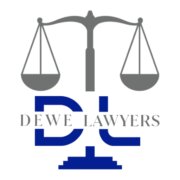Best Bankruptcy Lawyers in Port Moresby
Share your needs with us, get contacted by law firms.
Free. Takes 2 min.
List of the best lawyers in Port Moresby, Papua New Guinea
About Bankruptcy Law in Port Moresby, Papua New Guinea:
Bankruptcy law in Port Moresby, Papua New Guinea, governs the process by which individuals and businesses can seek relief from their debts. It allows debtors to either restructure their debts or liquidate their assets to repay creditors. Bankruptcy can provide a fresh start for individuals overwhelmed by debt and unable to meet their financial obligations.
Why You May Need a Lawyer:
You may need a lawyer if you are considering filing for bankruptcy, facing legal action from creditors, or need assistance with debt negotiation. A lawyer can help guide you through the complex legal process, protect your rights, and represent your interests in court. They can also help you understand your options and develop a plan to address your financial situation.
Local Laws Overview:
In Port Moresby, Papua New Guinea, bankruptcy law is governed by the Bankruptcy Act of 1966. This law provides for both voluntary and involuntary bankruptcy proceedings. Debtors may file for bankruptcy voluntarily to seek relief from their debts, while creditors can petition the court to declare a debtor bankrupt if they fail to pay their debts. Bankruptcy proceedings are heard in the National Court of Justice in Port Moresby.
Frequently Asked Questions:
1. What is the difference between voluntary and involuntary bankruptcy?
Voluntary bankruptcy is when a debtor files for bankruptcy on their own, while involuntary bankruptcy is when creditors force a debtor into bankruptcy through a court order.
2. Will bankruptcy erase all of my debts?
Bankruptcy may discharge some of your debts, but not all. Certain debts, such as child support, alimony, and student loans, are generally not dischargeable.
3. Can I keep any of my assets in bankruptcy?
Depending on the type of bankruptcy you file for, you may be able to keep certain assets through exemptions. Exemptions allow you to protect a certain amount of property from being liquidated to repay creditors.
4. How long does bankruptcy stay on my credit report?
Bankruptcy can stay on your credit report for up to 10 years, which may affect your ability to obtain credit in the future.
5. Can I file for bankruptcy more than once?
Yes, you can file for bankruptcy more than once, but there are limitations on how soon you can refile and receive a discharge of your debts.
6. Will I lose my job if I file for bankruptcy?
Employers are generally prohibited from discriminating against employees who file for bankruptcy, so you should not lose your job solely because of a bankruptcy filing.
7. How much does it cost to file for bankruptcy?
The cost of filing for bankruptcy in Port Moresby, Papua New Guinea, varies depending on the type of bankruptcy you file for and any legal fees associated with hiring a lawyer.
8. How long does the bankruptcy process take?
The bankruptcy process can vary in length, but it typically takes several months to complete. The duration may depend on the complexity of your case and any challenges that arise during the proceedings.
9. Can I discharge tax debts in bankruptcy?
Some tax debts may be dischargeable in bankruptcy, but there are specific criteria that must be met. Consulting with a lawyer can help you understand your options for handling tax debts in bankruptcy.
10. What are the consequences of bankruptcy?
Bankruptcy can have various consequences, including a negative impact on your credit score, restrictions on obtaining credit in the future, and potential loss of assets. It is important to weigh the benefits and drawbacks of bankruptcy before proceeding.
Additional Resources:
For more information about bankruptcy in Port Moresby, Papua New Guinea, you can contact the Office of the Registrar in Bankruptcy or seek assistance from the Papua New Guinea Law Society. These resources can provide guidance on the legal process and connect you with experienced bankruptcy lawyers in the area.
Next Steps:
If you are considering filing for bankruptcy or need legal advice related to debt relief in Port Moresby, Papua New Guinea, it is recommended to consult with a qualified bankruptcy lawyer. A lawyer can assess your financial situation, explain your options, and help you navigate the bankruptcy process effectively. Contact a local law firm specializing in bankruptcy law to schedule a consultation and discuss your case in detail.
Lawzana helps you find the best lawyers and law firms in Port Moresby through a curated and pre-screened list of qualified legal professionals. Our platform offers rankings and detailed profiles of attorneys and law firms, allowing you to compare based on practice areas, including Bankruptcy, experience, and client feedback.
Each profile includes a description of the firm's areas of practice, client reviews, team members and partners, year of establishment, spoken languages, office locations, contact information, social media presence, and any published articles or resources. Most firms on our platform speak English and are experienced in both local and international legal matters.
Get a quote from top-rated law firms in Port Moresby, Papua New Guinea — quickly, securely, and without unnecessary hassle.
Disclaimer:
The information provided on this page is for general informational purposes only and does not constitute legal advice. While we strive to ensure the accuracy and relevance of the content, legal information may change over time, and interpretations of the law can vary. You should always consult with a qualified legal professional for advice specific to your situation.
We disclaim all liability for actions taken or not taken based on the content of this page. If you believe any information is incorrect or outdated, please contact us, and we will review and update it where appropriate.











